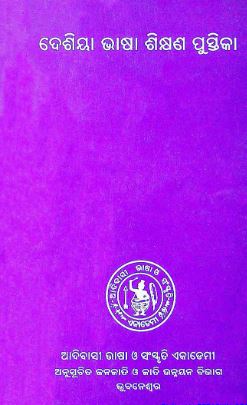Desia Bhasa Sikshan Pustika by Paramanand Patel, published in 2005, stands out as a seminal work in Odia literature, focusing on the educational upliftment of tribal languages. This guidebook represents a significant milestone in addressing the linguistic and educational needs of Odisha’s tribal communities, emphasizing the preservation and promotion of indigenous languages as a crucial aspect of cultural heritage.
Paramanand Patel, a distinguished scholar and advocate for tribal languages, demonstrates a deep commitment to linguistic diversity and social equity in “Desia Bhasa Sikshan Pustika.” His work transcends mere instructional content to become a comprehensive resource for educators, linguists, policymakers, and community leaders involved in tribal language revitalization efforts.
At its core, “Desia Bhasa Sikshan Pustika” serves as a practical guide for teaching and learning tribal languages within the framework of Odia. Patel systematically presents lessons that encompass grammar, vocabulary, and conversational skills tailored to the linguistic nuances of tribal communities. By equipping educators with effective teaching strategies and learners with essential language skills, the guidebook aims to bridge the gap between tribal languages and mainstream educational opportunities.
The guidebook’s significance extends beyond language instruction. Patel advocates for the recognition and valorization of tribal cultures through their languages, fostering a sense of pride and identity among tribal communities. He acknowledges the intrinsic link between language, culture, and social cohesion, emphasizing the role of language revitalization in strengthening community bonds and preserving cultural traditions.
Moreover, “Desia Bhasa Sikshan Pustika” addresses the broader socio-economic challenges faced by tribal communities. Patel discusses strategies for integrating linguistic education with sustainable development initiatives, advocating for inclusive policies that empower tribal individuals and communities. His holistic approach underscores the interconnectedness of language, education, and socio-economic empowerment in promoting the well-being of tribal populations.
The guidebook also serves as a catalyst for advocacy and awareness-raising on the importance of linguistic diversity and cultural rights. Patel’s scholarly insights and practical recommendations urge stakeholders to prioritize the preservation and promotion of tribal languages as a means of safeguarding cultural heritage and promoting social justice.
In conclusion, Paramanand Patel’s “Desia Bhasa Sikshan Pustika” represents a significant contribution to Odia literature and educational discourse. Through its comprehensive approach to tribal language education, cultural preservation, and socio-economic advocacy, the guidebook not only equips learners and educators with essential skills but also fosters a deeper appreciation for linguistic diversity and cultural identity. As a guidebook and advocacy tool, it inspires readers and stakeholders to champion inclusive education and uphold the rights of marginalized tribal communities, making a lasting impact on the landscape of tribal education in Odisha and beyond.
Books Info
| Books name | Desia Bhasa Sikshan Pustika |
| Author | Paramanand Patel, C. |
| No Of pages | 100 |
| Publisher | NA |
| Publication | 2005 |
| Printed At | NA |
| Distributor | NA |

